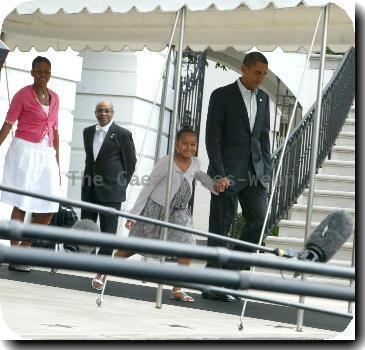Bernanke tells Congress: Don’t scale back Fed banking supervision
By Jim Kuhnhenn, APWednesday, March 17, 2010
Fed boss makes case to keep all banking duties
WASHINGTON — Federal Reserve Chairman Ben Bernanke on Wednesday urged Congress not to scale back the Fed’s regulatory authority over banks. He said the Fed needs the information it gleans from its bank oversight to set interest rates and gauge the health of the banking system.
A Senate bill to overhaul financial regulation would strip the Fed of its power to supervise state-chartered banks and bank holding companies with assets of less than $50 billion. That would leave the Fed to oversee only 35 big bank holding companies.
Critics have blamed lax regulation at the Fed and at other agencies for contributing to the financial crisis.
Testifying to the House Financial Services Committee, Bernanke once again acknowledged that the Fed’s past regulatory failures played a role in the crisis. But he said, as he has before, that the central bank has improved its regulatory oversight.
Other testifying at Wednesday’s hearing echoed some of Bernanke’s arguments:
— Former Fed Chairman Paul Volcker also argued for the Fed to retain supervision over all the banks it now oversees. His reasons mirrored Bernanke’s.
— Small banks expressed support for continued regulation by the Fed. Jeffrey Gerhart, president of Bank of Newman Grove, said the Fed would lose information about local economies, which affects interest rate decisions, if it no longer supervised small banks.
— Anil Kashyap, professor of economics and finance at the University of Chicago Booth School of Business, backed Bernanke’s pitch for the Fed to retain its existing oversight.
— Allan Meltzer, a professor at Carnegie-Mellon University, said he doubted any regulator could prevent all risks to the financial system.
But Bernanke’s arguments to preserve all the Fed’s supervisory powers drew skepticism from some House members at Wednesday’s hearing.
“Frankly, the Fed’s performance … has been inadequate,” said Rep. Spencer Bachus of Alabama, the senior Republican on the committee. “In spite of its oversight, many of the large, complex banking organizations excessively leveraged and engaged in off-balance sheet transactions that helped precipitate the financial crisis.”
The Fed oversees about 5,000 bank holding companies, about 850 smaller banks that are both state-chartered and belong to the Federal Reserve system and some foreign banks operating in the United States.
Legislation offered by Senate Banking Committee Chairman Christopher Dodd, D-Conn., would lift the Fed’s power over state-chartered banks and smaller bank holding firms. But it would give the Fed new powers to oversee nonbank financial firms so large and interconnected that their failure could threaten the economy.
Such firms could include insurance giant American International Group Inc. or General Electric Co.’s GE Capital business.
Bernanke said the Fed worries about losing oversight of small banks and essentially becoming the “too big to fail regulator” under the Dodd bill.
“We want connections to Main Street as well as Wall Street,” the Fed chief said.
With its narrower authority, the Fed’s system of 12 regional banks would undergo profound changes. The Kansas City and St. Louis Federal Reserve banks, for instance, would no longer have any banks under their supervision.
The Obama administration has supported a broader supervisory role for the Fed. Legislation passed by the House to overhaul the regulatory system wouldn’t trim the Fed’s banking duties.
Volcker, an economic adviser to President Barack Obama, said it would be a “grievous mistake” to curtail some of the Fed’s banking oversight.
“The Fed’s regional roots would be weaker and a useful source of information lost” if it no longer oversaw smaller institutions, Volcker said.
Dodd’s bill would also place an independent consumer watchdog inside the Fed. This consumer financial protection unit, though, would have its own director appointed by the president. It would not fall under Bernanke’s authority.
The administration has called for a freestanding consumer agency. That approach would strip the Fed of its consumer-protection duties. The House version of a financial revamp resembles the administration’s approach.
Bernanke has argued before that despite past shortcomings, the Fed should retain its consumer-protection duties. He didn’t address the matter in his testimony prepared for Wednesday.
Kashyap said he thought consumer-protection oversight should be handled by some other agency, not the Fed. But he added, “Stripping the Fed of its role in bank supervision would be a step in the wrong direction.”
Meltzer said he saw benefits in the current system of multiple regulators. “Setting up an agency to prevent systemic risk without a precise, operational definition is just another way to pick the public’s purse,” he said.
Meltzer also said he worried that the money the Fed pumped into the economy during the financial crisis will eventually spur inflation.
Tags: Barack Obama, Government Regulations, Industry Regulation, North America, Policy Making, United States, Washington

